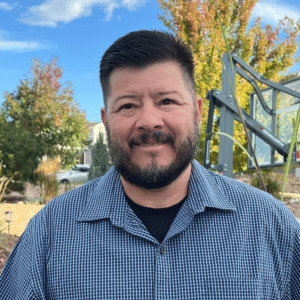Congratulations! You have taken a significant step towards improving your relationship by seeking couples counseling. Counseling provides valuable insights, tools, and strategies to help couples navigate challenges and foster a healthier, more fulfilling partnership. As you transition from couples counseling to everyday life, it is crucial to continue nurturing your relationship. In this article, we will explore essential advice for maintaining a healthy relationship after counseling, allowing you to build a solid foundation for lasting love.
This information is not designed to provide a diagnosis or replace a clinically excellent Christian counselor.
Nurture Lasting Love After Couples Counseling
1) Cultivate Effective Communication
Communication is the cornerstone of any successful relationship. After counseling, make a conscious effort to continue practicing effective communication skills. This means active listening, expressing your thoughts and feelings honestly, and maintaining an open dialogue. Create a safe space where both partners feel comfortable sharing their emotions, concerns, and desires without fear of judgment or criticism. Remember to use “I feel” statements to avoid blame and focus on finding solutions together.
2) Embrace Emotional Intimacy
Emotional intimacy deepens the connection between partners and fosters trust and understanding. After couples counseling, prioritize emotional intimacy by engaging in activities that promote vulnerability and closeness. Spend quality time together, engage in meaningful conversations, and express appreciation for each other. Share your dreams, fears, and aspirations, allowing your partner to truly know and understand you on a deeper level.
3) Prioritize Quality Time
In today’s fast-paced world, it is easy for couples to get caught up in the demands of work, family, and other responsibilities, neglecting the relationship in the process. Make a conscious effort to prioritize quality time together. Set aside dedicated time each week for date nights or activities you both enjoy. Disconnect from technology and be fully present with each other. Quality time allows you to reconnect, strengthen your bond, and create shared experiences.
4) Practice Emotional Intelligence
Emotional intelligence is crucial for navigating conflicts and challenges in a relationship. It involves being aware of your own emotions, managing them effectively, and empathizing with your partner’s feelings. After couples counseling, continue to develop your emotional intelligence by practicing self-reflection, seeking feedback, and being mindful of your emotional triggers. By fostering emotional intelligence, you can approach conflicts with empathy, understanding, and the ability to find mutually beneficial resolutions.
4) Foster Mutual Growth
A healthy relationship thrives on individual and mutual growth. After couples counseling, encourage each other’s personal development by supporting and celebrating individual goals and aspirations. Create a shared vision for your future, setting both personal and relationship goals. Engage in activities that promote personal growth, such as pursuing hobbies, learning together, or attending workshops or retreats as a couple. By continuously growing individually and as a couple, you can keep the relationship vibrant and fulfilling.
4) Practice Gratitude and Appreciation
Expressing gratitude and appreciation for your partner is a powerful way to strengthen your relationship. Make it a habit to acknowledge and express gratitude for the small and big things your partner does. Show appreciation through words, gestures, or acts of kindness. Regularly remind yourself of the positive qualities that attracted you to your partner in the first place. Practicing gratitude and appreciation helps create a positive and nurturing atmosphere in your relationship.
4) Maintain Boundaries and Individuality
While a healthy relationship requires connection and togetherness, it is equally important to maintain individuality and respect each other’s boundaries. After couples counseling, continue to nurture your individual interests, friendships, and personal space. Encourage your partner to do the same. Respecting each other’s boundaries allows for personal growth and prevents feelings of suffocation or loss of self within the relationship.
Maintaining a healthy relationship after counseling requires ongoing commitment, effort, and growth from both partners. By cultivating effective communication, embracing emotional intimacy, prioritizing quality time, practicing emotional intelligence, fostering mutual growth, practicing gratitude and appreciation, and maintaining boundaries and individuality, you can create a solid foundation for lasting love.
Remember that maintaining a healthy relationship is an ongoing process, and setbacks or challenges may arise along the way. However, by implementing these strategies, you are equipping yourselves with the tools to navigate those challenges and continue growing together.
Celebrate the progress you’ve made through counseling, but also recognize that the journey towards a healthy relationship is a lifelong commitment. Be patient, compassionate, and understanding with each other as you navigate the ups and downs of life.
Finally, never hesitate to seek help from a clinically excellent Christian counselor. Counseling can be a valuable resource during times of crisis or when you feel stuck. A therapist can provide guidance, support, and fresh perspectives to help you overcome any hurdles that may arise.
By following these pieces of advice and maintaining a proactive and positive approach, you can nurture a loving and fulfilling relationship that stands the test of time. Remember, the effort you put into your relationship is a direct investment in your own happiness and the happiness of your partner.
FIND A CHRISTIAN THERAPIST
Research shows that much of the change people experience during their time in therapy is because they felt heard and understood by their therapist–that their therapist “got them” and that the guidance they gave was relevant and applicable. Because of this, it is critical that you find a therapist whom you can connect with, whom you feel comfortable with, whom you feel “gets you.” Therefore, we encourage you to take a few minutes to read a little about each one of our therapists. If you prefer to look at the counselors nearest to you, please click the office location buttons below. Otherwise, you can meet with any of our Christian Counselors online from the comfort of your own home. If you have questions about any of them, please contact us!












